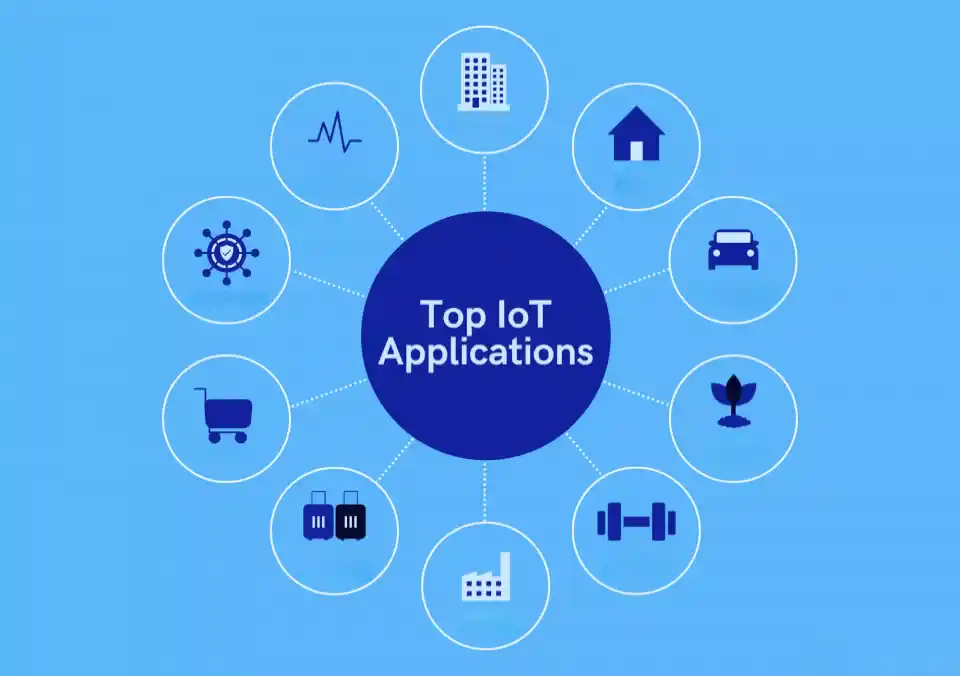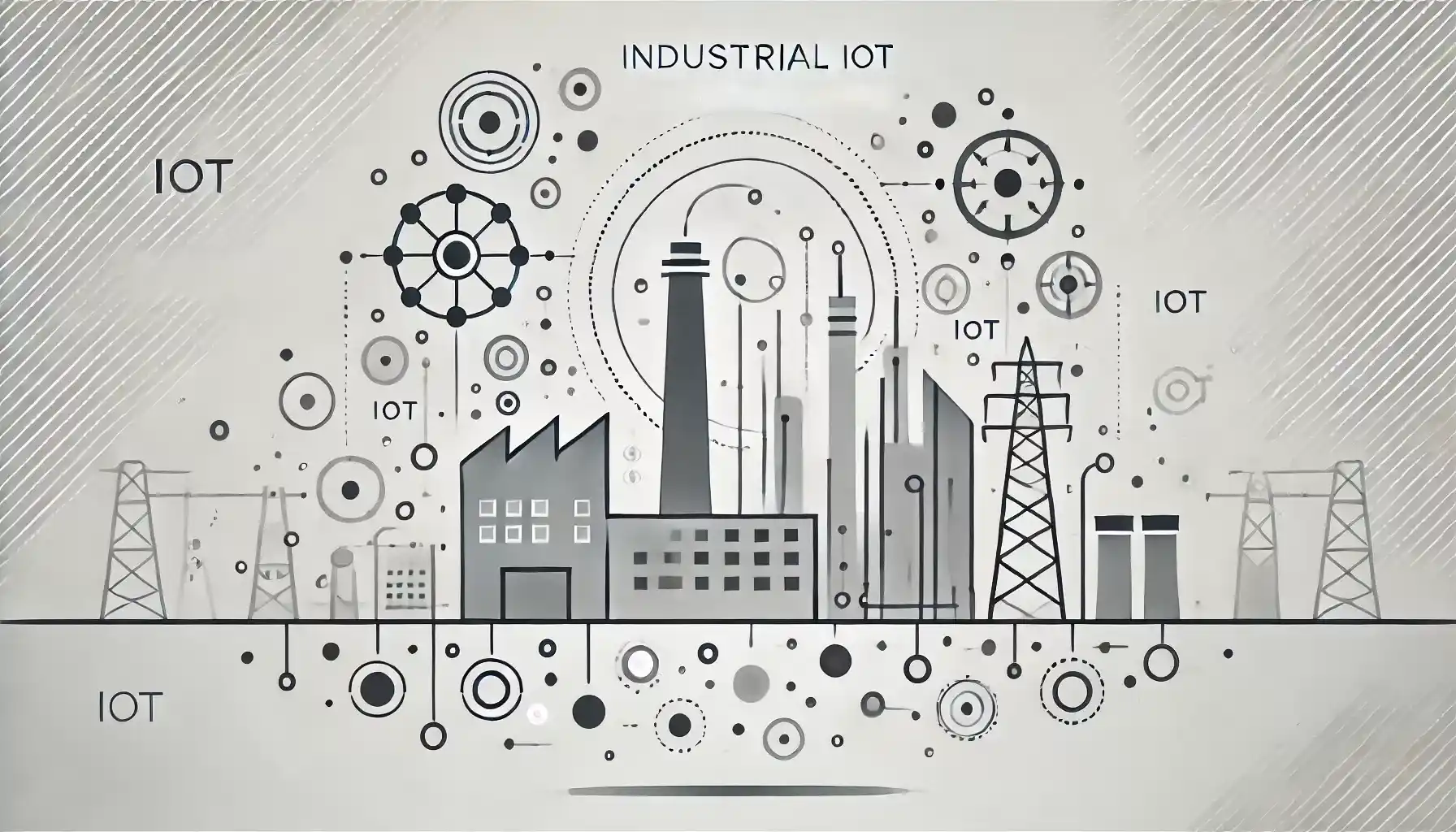Table of Contents
The rise of Industrial IoT (IIoT) is revolutionizing industries worldwide, offering unprecedented levels of connectivity, efficiency, and innovation. As industries strive to enhance productivity and reduce operational costs, the integration of IIoT has become essential. This transformative technology leverages advanced sensors, real-time data analytics, and intelligent systems to streamline operations and drive significant improvements.
From predictive maintenance to smart manufacturing, IIoT applications are reshaping the industrial landscape, providing actionable insights and fostering smarter decision-making processes.
By harnessing the power of IIoT, businesses can optimize asset management, enhance safety measures, and achieve superior energy management. The top 10 IIoT applications are driving tangible benefits, showcasing the potential for substantial gains in efficiency and productivity.
These applications are not only enhancing operational processes but also ensuring compliance with stringent regulations and improving overall workplace safety. Explore the top 10 powerful IIoT applications that are transforming industries and unlocking new opportunities for growth and innovation. Embrace the future of industry with these cutting-edge solutions, setting the stage for a smarter and more connected industrial environment.
What is Industrial IoT?

Industrial IoT (IIoT) refers to the integration of advanced sensors, software, and data analytics into industrial processes and machinery. By connecting devices and systems through the Internet, IIoT enables real-time monitoring, automation, and data-driven decision-making.
This technology enhances operational efficiency, improves safety, and reduces costs by providing insights into equipment performance, predicting maintenance needs, and optimizing processes. IIoT is a key driver in modernizing industries and boosting productivity across various sectors.
How Does Industrial IoT Work?
Industrial IoT (IIoT) works by embedding sensors and devices into machinery and systems to collect real-time data. This data is transmitted over a network to centralized platforms where it’s analyzed for actionable insights. IIoT integrates with existing industrial processes to optimize operations, predict maintenance needs, and improve efficiency.
By leveraging advanced analytics and machine learning, IIoT enables proactive decision-making and automation, ultimately enhancing productivity, reducing costs, and driving innovation in industrial environments.
10 Industrial IoT Applications

IIoT has a wide range of applications across various industries. Here are the top 10 applications of IIoT:
1. Predictive Maintenance
IIoT sensors and analytics predict equipment failures before they occur, allowing for proactive maintenance, reducing downtime, and extending the lifespan of machinery.
2. Asset Tracking and Management
IIoT enables real-time tracking of assets, such as tools, equipment, and vehicles, improving inventory management, reducing losses, and enhancing operational efficiency.
3. Smart Manufacturing
IIoT integrates advanced analytics and automation in manufacturing processes, optimizing production lines, improving product quality, and reducing waste.
4. Energy Management
IIoT devices monitor and control energy consumption in industrial facilities, optimizing energy use, reducing costs, and ensuring compliance with environmental regulations.
5. Supply Chain Optimization
IIoT enhances supply chain visibility and efficiency by tracking goods in transit, monitoring environmental conditions, and predicting supply chain disruptions.
6. Safety and Compliance
IIoT improves workplace safety by monitoring environmental conditions, detecting hazardous situations, and ensuring compliance with safety regulations through automated reporting and alerts.
7. Remote Monitoring and Control
IIoT allows for remote monitoring and control of industrial equipment and processes, enabling timely intervention and reducing the need for on-site personnel.
8. Quality Control
IIoT sensors collect data during production to ensure products meet quality standards, identifying defects in real-time and reducing the need for manual inspections.
9. Fleet Management
IIoT systems track and manage vehicle fleets, optimizing routes, monitoring driver behavior, and ensuring vehicle maintenance, leading to cost savings and improved efficiency.
10. Smart Grid
IIoT technologies are used in smart grids to monitor and manage electricity distribution, enhance grid reliability, and integrate renewable energy sources more effectively.
Final Note on Industrial IoT
IIoT has many exciting applications. It can decrease time and costs associated with equipment failure, take over tedious tasks that pose health risks for human employees, and ensure the stock is always replenished, preventing delays due to raw material shortages. These are only a few of the benefits.
However, deploying this technology comes with challenges. One of the main issues with IIoT applications is maintaining data security. As more information is aggregated, processed, and stored, the risk of cyberattacks increases. Another challenge is the cost associated with implementing IoT solutions. Businesses must consider these aspects when selecting an IIoT vendor.
Expert assistance can help in equipping devices with sensors, building platforms for managing IoT devices, and developing custom big data analytics solutions tailored to specific business needs.
Embracing IIoT can transform industries, driving efficiency and innovation while ensuring potential obstacles are addressed. With the right approach and support, the potential benefits of Industrial IoT far outweigh the challenges, paving the way for a more efficient and resilient future.





